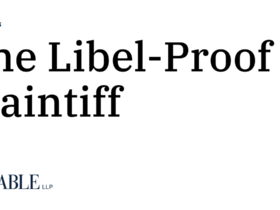If you don’t own your excellence, who else will? Self-belief isn’t a fluffy mantra; it’s the cornerstone of true leadership, authentic influence, and sustainable success. Self-belief is your greatest asset, acting as a roadmap to uncover the unique value you bring to the table, and identify actionable strategies to confidently showcase your strengths in a way that resonates and inspires.
Leading with Confidence
Research from Gallup shows that confident leaders are more likely to inspire trust, foster team cohesion, and influence decision-making outcomes. But confidence doesn’t equate to knowing everything. In fact, I’d say one of the greatest strengths a leader should have is to recognise and accept when they don’t know the answer to something. It doesn’t mean having all the answers; it’s about cultivating a belief in your ability to navigate challenges and deliver results. Self-doubt, on the other hand, can be contagious. Teams mirror their leaders—if you’re hesitant or unsure, your team might question decisions or lose momentum. As leaders, your attitude directly impacts that of your team. Make sure you’re projecting an attitude of confidence and belief – not just in yourself but in the abilities of the people you’re leading.
Identifying and Owning Your Unique Excellence
In the whirlwind of deadlines and expectations, many leaders focus so intently on what’s next that they fail to pause and acknowledge their own growth. But knowing your strengths is essential. If you don’t know what sets you apart, how can you effectively leverage it? To yield the full advantages of self-belief, you must first uncover and recognise your own strengths and values. Here’s how:
- Create a Value Inventory: Write down your top achievements over the past year, big or small. Look for patterns—what strengths do these successes highlight? For example, do they reflect your ability to problem-solve under pressure or build strong relationships?
- Seek External Validation: Sometimes, it’s hard to see ourselves objectively. Ask trusted colleagues, mentors, or even friends to share what they think you do exceptionally well. Their insights might surprise and empower you.
- Recognise Milestones Beyond Results: Excellence isn’t always tied to outcomes. Perhaps your leadership prevented a project from derailing or fostered a supportive team culture. Celebrate these behind-the-scenes contributions too.
Keep in mind that owning your excellence is different from boasting. Share your achievements in ways that acknowledge the collective effort. For example, instead of saying, “I turned this project around,” frame it as, “Our team achieved incredible results by working together, and I’m proud of the role I played in leading us through challenges.”
Communicating Confidence Authentically
Projecting confidence isn’t about arrogance; it’s about showing up with clarity and purpose. True confidence is rooted in authenticity—it’s less about shouting your worth and more about speaking in a way that resonates with your audience.
- Align Confidence with Your Values: When introducing yourself in a meeting or networking event, frame your value in terms of how it serves others. For example, instead of “I’m an expert in change management,” say, “I specialize in guiding teams through transitions to ensure they emerge stronger and more cohesive.”
- Adapt to Your Audience: Tailor your message to the people you’re speaking to. A room full of executives might value measurable results, while your team might connect better with your vision or encouragement.
- Practice Power Posing: Harvard Business School posits that adopting a confident posture, even for a few minutes, can influence how others perceive you and boost your self-assurance.
Confidence doesn’t mean perfection. Leaders who acknowledge their mistakes while demonstrating how they’re addressing them build trust and authenticity. For example, saying, “I missed the mark here, but here’s what I’ve learned and how I’m applying it moving forward,” shows resilience and leadership maturity.
Conclusion
Self-belief is a strategic asset that shapes how others perceive you as a leader. By recognising your unique excellence and communicating it authentically, you create a foundation of trust and influence. When done correctly with no ego or bravado fueling it, being your own biggest fan shows the world that you believe in your ability to lead, inspire, and achieve.















